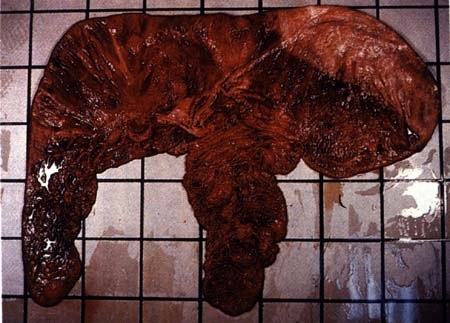
The establishment and loss of twins, often results in a mare that is barren for a year and the associated economic loss. The incidence of twin births has been documented as occurring in 1-2% of the equine population with twinning accounting for 6-30% of abortions in the mare. When twins are present, gestation proceeds normally until the conceptuses begin to compete for uterine space or placenta. With or without mummification, death of one fetus leads to abortion, usually between 5 and 9 months of gestation. Lactation commonly occurs after one foal dies and causes premature mammary gland development. Surviving foals are usually weaker, more susceptible to infection, and slower to develop than singletons. Fortunately, with the use of ultrasound and an increased understanding of the mechanisms involved in twinning, better approaches to twin reduction have been developed.







